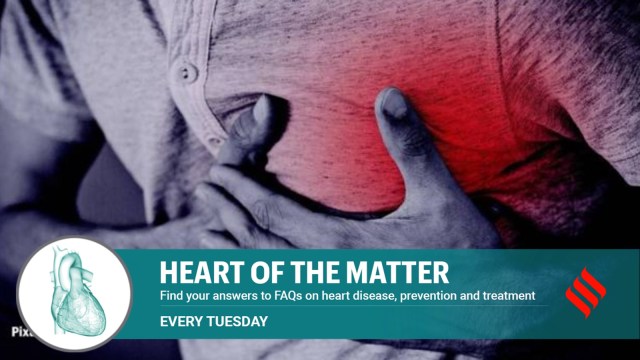Not just Sunjay Kapur, a bee sting and a wasp bite triggered heart attack in 2 patients: Can a shock allergic reaction damage your heart?
Only 0.5 to 2 per cent of anaphylaxis or severe allergic reaction cases can trigger heart attacks
 If blood pressure drops too low, the heart may struggle to pump enough oxygenated blood to vital organs and itself, leading to oxygen deprivation and damage to the heart muscle. (Photo: Pixabay)
If blood pressure drops too low, the heart may struggle to pump enough oxygenated blood to vital organs and itself, leading to oxygen deprivation and damage to the heart muscle. (Photo: Pixabay)Over the last couple of days, many people have been asking me if the sudden death of businessman and Karisma Kapoor’s former husband Sunjay Kapur could indeed have been triggered by a bee he had accidentally swallowed during a polo match. And I have been saying that this foreign object might have triggered an extreme allergic reaction that enabled the onset of a heart attack. However, the person concerned would have to be allergic to the bug, in this case a bee, or have an underlying heart condition.
In my years in cardiology, I have seen two cases of bug-induced allergic reaction and subsequent heart attack and sudden cardiac arrest. Let me tell you only 0.5 to 2 per cent of anaphylaxis or severe allergic reaction cases can trigger heart attacks. This is what we call the Kounis syndrome. One case involved a 31-year-old, who had been working in a bee farm and had multiple stings, not knowing he was allergic to their venom. The other suffered a wasp bite, which aggravated an underlying heart condition.
What is Kounis syndrome?
A rare condition where heart attacks and sudden cardiac arrests occur due to allergic or hypersensitivity reactions to medication, food, insect stings, or even exposure to an unfamiliar environment. The allergic reaction initially manifests as shortness of breath.
The allergic reaction causes the body to release a compound called histamine to counter and neutralise the pathogen in the body. This widens blood vessels, leading to a rapid and sharp drop in blood pressure. If blood pressure drops too low, the heart may struggle to pump enough oxygenated blood to vital organs and itself, leading to oxygen deprivation and damage to the heart muscle. This amounts to stress for those with already weakened cardiovascular systems. It can, therefore, trigger abnormal heart rhythms or arrhythmia, especially in those with underlying heart conditions. This malfunctioning of the heart’s electrical system can lead to sudden stoppage of the heart, what we know as sudden cardiac arrest.
Anaphylaxis can let fluid and proteins leak from the bloodstream into surrounding tissues. This decreases blood volume and blood pressure further.
In some cases, anaphylaxis can narrow the coronary arteries, further reducing blood flow to the heart muscle. But the most common reaction is plaque rupture in people with pre-existing coronary artery disease, leading to a heart attack.
How allergic reactions trigger heart blockages
The heart, which has to pump blood under stress, may suffer plaque rupture. The 31-year-old patient had just 40 per cent plaque but it got dislodged, triggering blood clots to cover the tear on the wall, leading to blockages. So we had to open up his artery by putting in a stent or a small bridge to keep it widened. The second patient did not need a stent because he had plaque erosion, where the plaque only loses its outer lining but still exposes the underlying core, triggering a blood clot that blocks the artery.
How to prevent heart attacks during allergic reactions?
First and foremost, the patient should be revived with steroids or a strong dose of adrenaline, given by an injection or drip in their vein. The patient should be given oxygen and get an electrocardiogram (ECG) done.
(Dr Shetty is lead cardiologist, Sparsh Hospitals, Bengaluru)
Photos


- 01
- 02
- 03
- 04
- 05





























